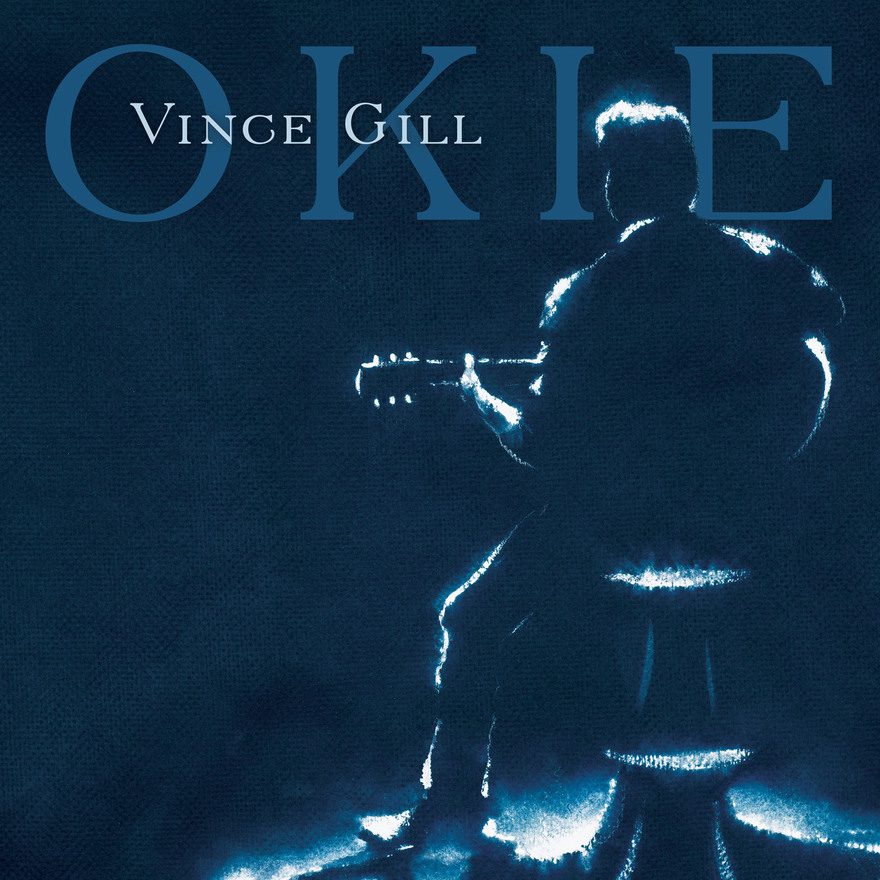Vince Gill Lets Singing Take the Spotlight on ‘Okie’

Vince Gill has always delivered poignant moments in his music. When he and Patty Loveless sang “Go Rest High on That Mountain” at George Jones’ funeral a few years ago, for example, even he couldn’t hold back the tears. His high tenor vocals, whether he’s singing lead or harmony, cut straight to our hearts and touch us in ways we sometimes never forget. On Okie, Gill collects a batch of songs that focus on his songwriting and his singing. The spare quality of these recordings allows the beauty of Gill’s lyrics to shine through. There are plenty of times listeners might shed a tear or feel anger or love rise listening to Okie.
Gill bares his soul on each of these songs, singing tributes to his songwriting mentors (“Nothin’ Like a Guy Clark Song,” “A World without Haggard”) and to his mother (“A Letter to My Mama”), and to his wife, Amy Grant (“When My Amy Prays”). Yet Gill also shines a light on the excruciating emotional toll of sexual abuse on the brilliant and unforgettable “Forever Changed.” The song opens spaciously with John Jarvis’s gospel-inflected piano, allowing us to enter the song and to feel the victim’s pain from the devastating act of a predator, her loss of innocence, her sorrow, and the singer’s anger. In a moment, the song counsels, “she’s forever changed” because of a man who “put his hands where they don’t belong.”
Other songs reflect on the ways our lives can a change in a moment and ask how we can bear the consequences of such actions. “What Choice Will You Make?” shuffles along over the story of an unexpected teenage pregnancy: “You didn’t mean to go that far / You never meant to cross that line / Sittin’ on the edge of town / All packed up to run away / You’re too young for a wedding gown / There’s voices begging you to stay / What choice will you make?”
The country funk ballad “That Old Man of Mine” tells the story of a young man who kills his father to prevent the old man’s physical abuse of his mother, as well as the bruises the son himself had to wear. As a result of his choice, the son wears “this number on my back / It suits me just fine / God knows I had it comin’ / it was worth the ninety-nine.”
“Black and White” ponders whether we were better off in an earlier, simpler time when we’d “catch a picture show on a Friday night / A goodnight kiss in the front porch light.” In the end, he admits “some days yes, some days not quite.”
A spare piano floats beneath Gill’s voice in the touching tribute to the strength and grace he feels “When My Amy Prays.”
The somber beauty of Okie reveals a side of Gill that we don’t see often enough — the quiet, reflective Gill who ponders ways that our world can be a better place and ways that we can express the depths of our love for those around us.




